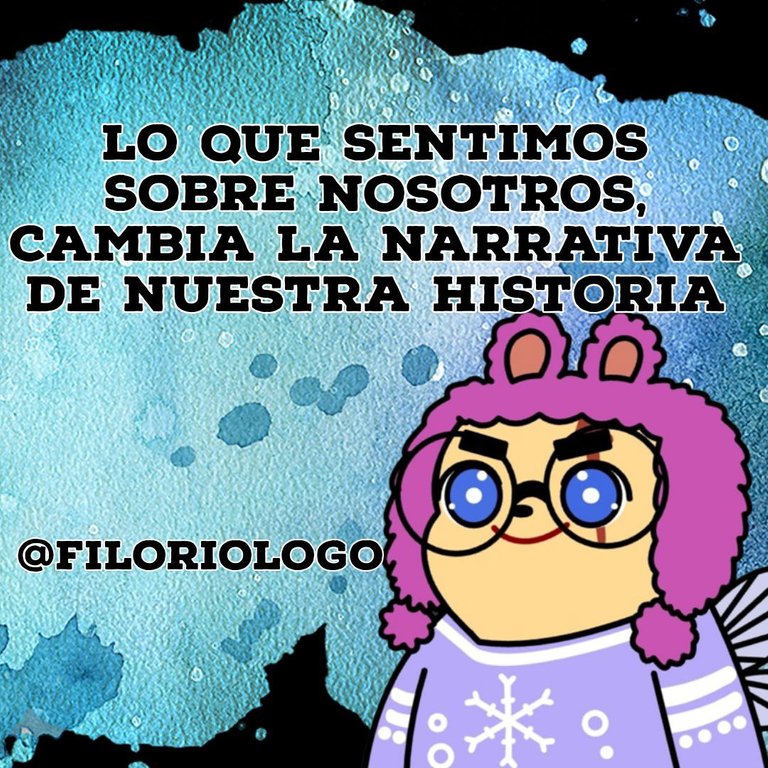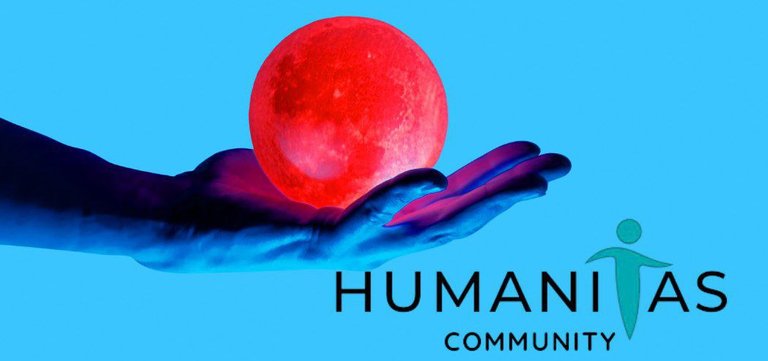How we feel about ourselves changes the narrative of our history. [ENG-ESP]

Greetings friends of Hive, today I want to share a very personal reflection that arose recently, in my last post I told you that I went for a walk with my wife and my mom, I also told you that I had time without sharing that way with my mom and among the things we talked, she told me something about my childhood and that I remembered a little differently, and although the issue of memory philosophical level I have already studied a little when I read Plato and a little Augustine of Hippo, I think I had not thought about it from a personal perspective.
Let me explain, memory as St. Augustine of Hippo would say is that which puts us in front of ourselves, but it has a deficiency, and it happens that we can not rely on it 100%, although we have more GB of storage than any computer in the world, we are not machines and therefore we can not record memories accurately and precisely, as we have emotions and they are an important factor in almost everything in our lives. So I challenge you, dear reader, to find a memory in you that is not charged with some emotion, the point is that our memories are what guide our own narrative.

How is it possible for two people to remember the same event in their lives differently?
Even if we talk about the same event, each person has his own emotional charge, as Ortega y Gasset would say, each one has his own context and the memory that is brought back comes dressed in a way to participate, has its own set and does not respond to fashion, in other words, it is a perspective, rather than a specific de facto situation. So emotion can alter the memory, and the really curious thing is that we do not perceive this in a conscious way, as people we are giving space to memories every day to the point that we do not think about the emotional charge they carry, we simply assume that the fact recorded in the memory is precisely that, a fact, when in reality it is nothing more than a perspective.
Perhaps a neurologist or psychiatrist might have more resources to explain how the brain works, and could explain the process by which we record events in our memory. I vaguely understand that we have a short term memory and a long term memory. The former is the mechanism, if we can call it that, that we use to process everything that happens to us during the day, but why can't we remember everything with extreme precision?
I speculate that only that which is emotionally charged enough to matter to us in some way migrates from memory to long-term memory.
With what I have said, I have not solved the question of why we remember the same thing differently, it happens that as Nietzsche affirmed although in another context, we cannot affirm something as a truth, not even imagine to be able to affirm something as The Truth, what we do is to possess a sort of perspective. A point that serves us as a reference, only to ourselves and as we know, it is not entirely reliable if what we seek is literalism with what happened.

Now, I cannot affirm that things in the evolution of our life have a meaning, or only everything is there given, open to the meaning that we can give it, be that as it may, memory is perhaps nothing more than a repository of small stories that serves as a resource for the construction of our own narrative. When we affirm that every memory has an emotional charge and that this emotion is a perspective, we can affirm that the emotions we feel about ourselves and our context change the perspective of our stories.
Gabo (Gabriel García Márquez) once said:
"Life is not what one lived, but what one remembers and how one remembers it in order to tell it."
And that makes me think that Gabo was well aware of this memory that I am reflecting on with you today. It was clear to him, he knew that memories are self-founding perspectives of meaning in the story that we ourselves make of ourselves.
A sort of autobiography of meaning, and it makes me think about the things I can say about myself. Do I say myself in the same way that a friend or a person close to me says to someone else? I think not, I am not the same if someone else tells me.
Perhaps my parents, my brother, my wife and my best friend, know me in a different way than I know myself, moreover each of them will have a version of me from their perspective, and all equally true, not by being partially different from each other they deny each other, but they complement each other. I believe that what we conceive as "I" is simply several "I's" that have been diluted in the wide range of perceptions of different people, including myself as the first affected of what I dare to call the "diluted I".
With what has been said, I think it is fairly clear that emotions, what we feel changes in some way our own narrative, what we feel affects in some way what we tell ourselves about ourselves, maybe in a period of enthusiasm what we say about ourselves to others and to ourselves will come with a load of optimism, but if I have just felt frustrated or sad, my narrative will change according to my mood. So we have to be mindful of how we feel as it will change our own historical narrative.
Thank you for reading and for your time in visiting my blog.
See you next time


VERSIÓN EN ESPAÑOL
Lo que sentimos sobre nosotros, cambia la narrativa de nuestra Historia
Saludos amigos de Hive, hoy quiero compartir una reflexión muy personal que surgió recientemente, en mi ultimo post les comenté que salí a pasear junto a mi esposa y mi mamá, también les dije que tenía tiempo sin compartir de ese modo con mi mamá y entre las cosas que conversamos, ella me comentó algo de mi infancia y que yo recordaba un poco diferente, y aunque el tema de la memoría nivel filosófico ya lo he estudiado un poco cuando leí a Platón y un poco Agustín de Hipona, creo que no lo había pensado desde una perspectiva personal.
Me explico, la memoria como diría San Agustín de Hipona es aquello que nos pone a nosotros frente a nosotros mismos, pero tiene una deficiencia, y sucede que no podemos confiar en ella un 100%, aunque tengamos más GB de almacenamiento que cualquier computadora del mundo, no somos unas máquinas y por lo tanto no podemos registrar los recuerdos de manera exacta y precisa, ya que poseemos emociones y son un factor importante en casi todo en nuestra vida. Así que te reto estimado lector, a encontrar un recuerdo en ti, que no venga cargado de alguna emoción, el punto es que nuestros recuerdos son lo que orientan nuestra propia narrativa.

¿Cómo es posible que dos personas recuerden un mismo suceso en sus vidas de manera diferente?
Aunque hablemos del mismo hecho, cada persona tiene su propia carga emotiva, diría Ortega y Gasset, cada uno posee su propio contexto y el recuerdo que se trae viene vestido de un modo participar, tiene su propio conjunto y no responde a la moda, en otras palabras, es una perspectiva, más que una situación específica de facto. De modo que la emoción puede alterar el recuerdo, y lo realmente curioso es que eso no lo percibimos de manera conciente, como personas vamos dando cabida a recuerdos cada día al punto de que no pensamos en la carga emocional que llevan consigo, simplemente asumimos que el hecho registrado en la memoría es eso precisamente, un hecho, cuando en realidad no es más que una perspectiva.
Quizá un neurólogo o un psiquiatra pueda tener más recursos al momento de explicar el funcionamiento del cerebro, y nos pueda explicar el proceso por el cual vamos registrando sucesos en nuestra memoria. Vagamente entiendo que poseemos una memoria a corto plazo y una a largo plazo. La primera es el mecanismo si se puede llamar así, que usamos para procesar todo lo que nos sucede en el día, pero, ¿Por qué no lo podemos recordar todo con extrema precisión?
Especulo que, solo aquello que posee carga emotiva lo suficientemente como para importarnos de algún modo, migra de la memoria hacia la memoria a largo plazo.
Con lo dicho, no he resuelto la incógnita del por qué recordamos lo mismo de manera diferente, sucede que como afirmaba Nietzsche aunque en otro contexto, no podemos afirmar algo como una verdad, ni siquiera imaginar poder afirmar algo como La Verdad, nosotros lo que hacemos en poseer una suerte de perspectiva. Un punto que nos funge de referencia, solo a nosotros mismos y como bien sabemos, no es del todo fidedigno si lo que buscamos es literalidad con lo sucedido.

Ahora bien, no puedo afirmar que las cosas en el devenir de nuestra vida posean un sentido, o solamente todo está allí dado, abierto al sentido que podemos otorgarle, sea como sea, la memoria quizá no sea otra cosa que un repositorio de pequeños relatos que nos sirve como recurso para la construcción de nuestra propia narrativa. Cuando afirmamos que, todo recuerdo posee una carga emotiva y que dicha emoción es una perspectiva, podemos afirmar que las emociones que sentimos sobre nosotros y nuestro contexto cambian la perspectiva de nuestro relatos.
El Gabo (Gabriel García Márquez) alguna vez dijo:
"La vida no es la que uno vivió, sino la que uno recuerda y cómo la recuerda para contarla.”
Y eso me hace pensar que el Gabo conocía bien esto del recuerdo que estoy reflexionando junto a ustedes en este día. Lo tenía claro, sabía que los recuerdos son perspectivas auto-fundantes de sentido en el relato que nosotros mismos hacemos de nosotros.
Una suerte de autobiografía de sentido, y me hace pensar en las cosas que puedo decir de mí. ¿Será que me digo de la misma manera que un amigo o una persona cercana a mí me dice a otro? Pienso que no, yo no soy el mismo si otro me relata.
Quizás mis padres, mi hermano, mi esposa y mi mejor amiga, me conozcan de una manera diferente a como yo mismo me conozco, es más cada uno de ellos tendrá una versión de mí desde su perspectiva, y todas igual de ciertas, no por ser parcialmente diferentes entre ellas se niegan entre sí, sino que se complementan. Creo que eso que concebimos como “yo” simplemente es varios “yo” que se han diluido en la amplia gama de percepciones de las diferentes personas, incluyéndome como el primer afectado de eso me atrevo a llamar el “yo diluido”.
Con lo dicho, creo que queda medianamente claro que las emociones, eso que sentimos cambia de algún modo nuestra propia narrativa, lo que sentimos afecta de algún modo eso que nos decimos a nosotros mismos de nosotros mismos, quizá en un periodo de entusiasmo lo que decimos de nosotros a otros y a nosotros mismo sea venga con una carga de optimismo, pero si acabo de sentirme frustrado o triste, mi narrativa cambiará según mi estado de ánimo. De modo que hay que estar atento a lo que sentimos ya que cambiará nuestro propio relato histórico.
Gracias por leer y por tu tiempo al visitar mi blog.
Hasta la próxima

https://twitter.com/FiloRiologo/status/1522774193338822656
The rewards earned on this comment will go directly to the person sharing the post on Twitter as long as they are registered with @poshtoken. Sign up at https://hiveposh.com.
Como dices este tema es muy interesante, porque lo mismo sucede con las diversas acciones que realiza el ser humano, empezando por la actividad intelectiva y volitiva. En realidad, el ser es uno solo y en todo lo que actúa implica todas las áreas de su ser, siendo las emociones unas de las mas importantes.
!PIZZA
PIZZA Holders sent $PIZZA tips in this post's comments:
@jesusalejos(5/10) tipped @filoriologo (x1)
Learn more at https://hive.pizza.